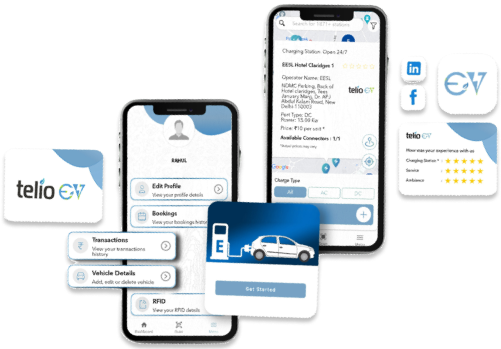Enhancing Electric Vehicle Charging with Advanced Management Software

The rapid adoption of electric vehicles (EVs) has required the development of effective and user-friendly charging solutions. Central to this development are Electric Vehicle Charging Management Software (EV CMS) and EV Charging Apps, which enhance the charging procedure for both operators and users.
Comprehending EV Charging Management Software
EV Charging Management Software works as a detailed platform that allows Charge Point Operators (CPOs) and other stakeholders to monitor, manage, and optimize EV charging stations. Key functionalities consist of real-time monitoring of charging stations, user authentication, payment processing, and energy management. By integrating these features, the software ensures effective operation and boosts the user experience.
Key Features of EV Charging Management Software
1. Real-Time Monitoring and Control: Operators can supervise the status of charging stations, track energy usage, and address problems quickly.
2. User Authentication and Access Control: The software manages user access, making sure that just authorized individuals can make use of the charging facilities.
3. Payment Processing: It facilitates seamless deals, supporting different payment methods to cater to varied user choices.
4. Energy Management: By optimizing energy distribution, the software reduces functional expenses and supports grid stability.
5. Reporting and Analytics: Comprehensive data analysis aids in notified decision-making and Charging Station Management Software tactical planning for network growth.
The Role of EV Charging Apps
EV Charging Apps are created to offer EV owners with convenient access to charging facilities. These applications provide features such as finding nearby charging stations, real-time schedule updates, navigation help, and remote monitoring of charging sessions. By boosting ease of access and user engagement, these apps play an essential function in promoting the adoption of electric vehicles.
Combination with Open Charge Point Interface (OCPI)
The Open Charge Point Interface (OCPI) is a standardized protocol that assists in interoperability between various EV charging networks. Integration with OCPI allows for smooth roaming, enabling users to gain access to several charging networks with a single account. This interoperability boosts user convenience and broadens the ease of access of charging infrastructure.
Advantages of Implementing Advanced Charging Solutions
- Enhanced User Experience: User-friendly interfaces and trustworthy services increase customer fulfillment and loyalty.
- Operational Efficiency: Automation and real-time tracking decrease manual intervention, decreasing operational expenses.
- Scalability: Advanced software solutions support the expansion of charging networks to satisfy growing demand.
- Revenue Generation: Flexible prices models and effective payment processing open new income streams for operators.
Conclusion
The combination of EV Charging Management Software and user-centric EV Charging Apps is pivotal beforehand the electric vehicle ecosystem. These innovations not just improve operations for service providers however also considerably boost the charging experience for users. As the EV market continues to grow, the adoption of such sophisticated solutions will contribute in meeting the increasing demand for effective and available charging infrastructure.
 Danny Tamberelli Then & Now!
Danny Tamberelli Then & Now! Daniel Stern Then & Now!
Daniel Stern Then & Now! Tina Louise Then & Now!
Tina Louise Then & Now! Teri Hatcher Then & Now!
Teri Hatcher Then & Now! Stephen Hawking Then & Now!
Stephen Hawking Then & Now!